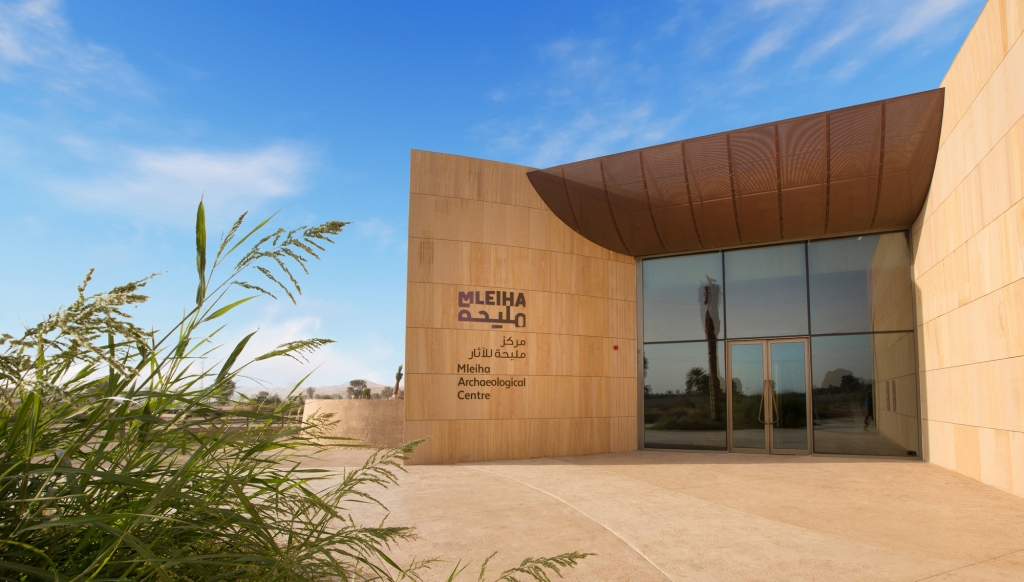
Meet Arabian Foxes, Desert Gazelles, and other Guardians of Mleiha
Just a few decades ago, little was known about Mleiha. Located some 20 km south of Al Dhaid and 50 km east of the city of Sharjah – a village that after more than 30 years of careful excavations and study is beginning to unearth fascinating aspects of life that the region’s Bedouins have lived in, dating back as far as the Paleolithic age.
The region also has a plethora of flora and fauna including some rare plants and animals that are not easily found elsewhere. One can understand that looking at the diverse landscape and topography of Mleiha. In no other place in the UAE will you be able to find rolling Barchan sand dunes, alluvial gravel plains and solitary Limestone outcrops immersing out of the landscape view, all spaced within a few kms of each other (sometimes less than 100 meters apart)! This feature of Mleiha’s topography allows for specialist plants and animals to inhabit each eco-habitat and thrive in their terrain respectively.
The Sharjah Investment and Development Authority (Shurooq) has been the architect of the Mleiha Archaeological and Eco-tourism Project, and has since been hard at work with a team of experts, revealing and restoring its timeless treasures, and protecting the flora and fauna of the site in several phases.
The Mleiha region teems with life of all shapes and sizes. Mammals, reptiles, insects, plants, desert succulents, and other fascinating species, deft in their ability to adapt to what can at times be a harsh environment, have resided here for hundreds of thousands of years.
Mleiha is home to the region’s diverse flora. Acacia tortillis or the umbrella thorn acacia, the beautiful Arabian primrose, the chlorophyll lacking desert hyacinth that depends on host plants for nutrients, or the popcorn plant with its unpronounceable name, Pseudogailloniahymenostephana, whose tiny white trumpet flowers sit on velvety pink calyces until they grow to be carried away with the desert wind – the UAE adorned by its most natural habitat can be experienced in Mleiha.
The site’s diverse fauna provides an equally comprehensive insight to the wildlife of the UAE. Blister beetles, cuckoo wasps, jewel beetles, and other insect species live in harmony and serenity in the desert of Mleiha. The donkeys and camels graze around in their natural habitat, while the famous Arabian red fox keeps the animal kingdom out of harm’s way and they are not seen commonly to the public's eye as they are very shy and prefer coming out at night most of the time.
As present, a visit to Mleiha will entail an array of physical and intellectual activities of adventure and discovery. From the UAE’s largest archaeological and burial sites; early human shelters; the ancient city of Mleiha and the Mleiha Fort; daily life items like pottery, kitchen tools, even personal belongings, accessories, and many other treasures and findings. Mleiha is the UAE’s most important historical site when it comes to getting an insight into the region’s social order, rituals, diet, pathologies, trade and commerce.
“Mleiha with its well-curated exhibition, interactive displays and artefacts, provides an entry point to the olden ages. Here, you will travel back thousands of years to see for yourself how the UAE was in its nascent stages of existence. Mleiha reveals our ancestors’ lifestyle, their tools for survival, and much more,” explained Mahmoud Rashid Al Suwaidi, Manager of Mleiha Archaeological and Eco-tourism.
“Mleiha is a destination where knowledge, treasures, nature, and entertainment meet. We are replete with all modern-day allures of the desert life. If you’re a desert sport junkie, Mleiha will reward you with one of the most exciting dune-bashing experiences of your life. The Bystro Café is the perfect spot for a rejuvenating snack and panoramic views before continuing with the day’s adventure. Wildlife lovers will spot the odd mountain gazelle going about its business. There is something to appeal to every taste here, and that is what makes Mleiha experience truly unique.”
One of Mleiha’s best offerings is their well-trained and friendly tour guides. Visitors to the site are never found without one, who make navigating its vast areas seamless with their knowledge and multilingual prowess.
Even with so much to do and see here, Mleiha is still a work-in-progress. Shurooq is currently planning for the second phase of the project to include the creation of a 450-sqkm Mleiha National Desert Park in collaboration with Sharjah’s Environment and Protected Areas Authority (EPAA), which will reintroduce indigenous wildlife, such as oryx and gazelles, to the area. It will also include areas for camping, a motel for overnight stays and an astronomy observatory.
Visitors to Mleiha Archaeological Centre now have access to all the information they need about the destination, the wide array of adventure packages, Mleiha attractions, centre opening hours, reservations, and much more on: discovermleiha.ae
Mleiha Archaeological and Eco-tourism is one of the Sharjah Investment and Development Authority (Shurooq)’s signature destinations, the first phase of which was opened in January 2016. The destination aligns with the vision of His Highness Sheikh Dr. Sultan Bin Mohammed Al Qasimi, Supreme Council Member and Ruler of Sharjah, to highlight Sharjah’s ancient archaeological sites. The sites were discovered and excavated after years of exploration by the Department of Antiquities at the Sharjah Department of Culture and Information, with the aim of safeguarding historical monuments, the natural environment, biodiversity and wildlife in Mleiha.


























